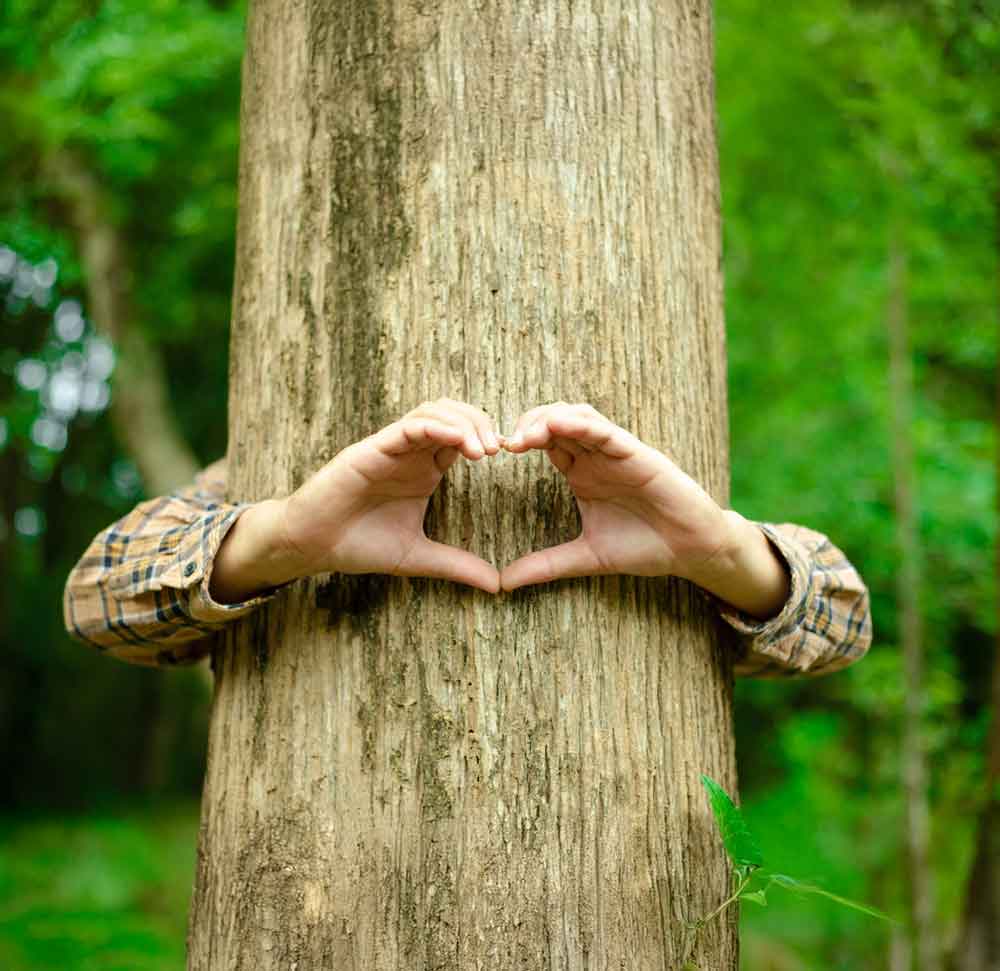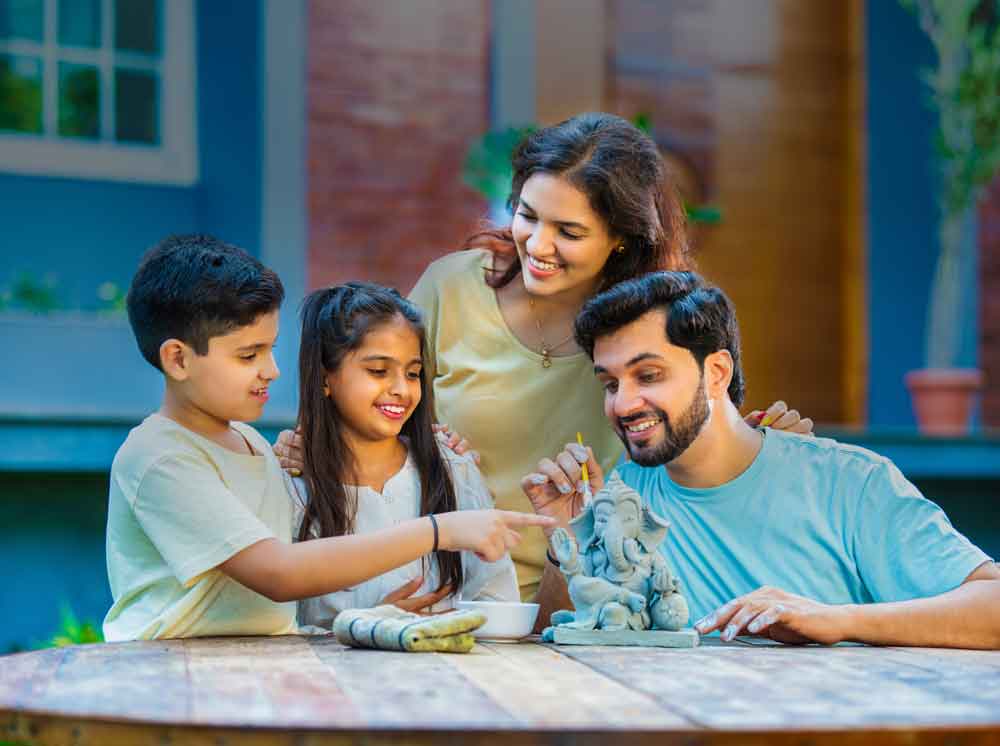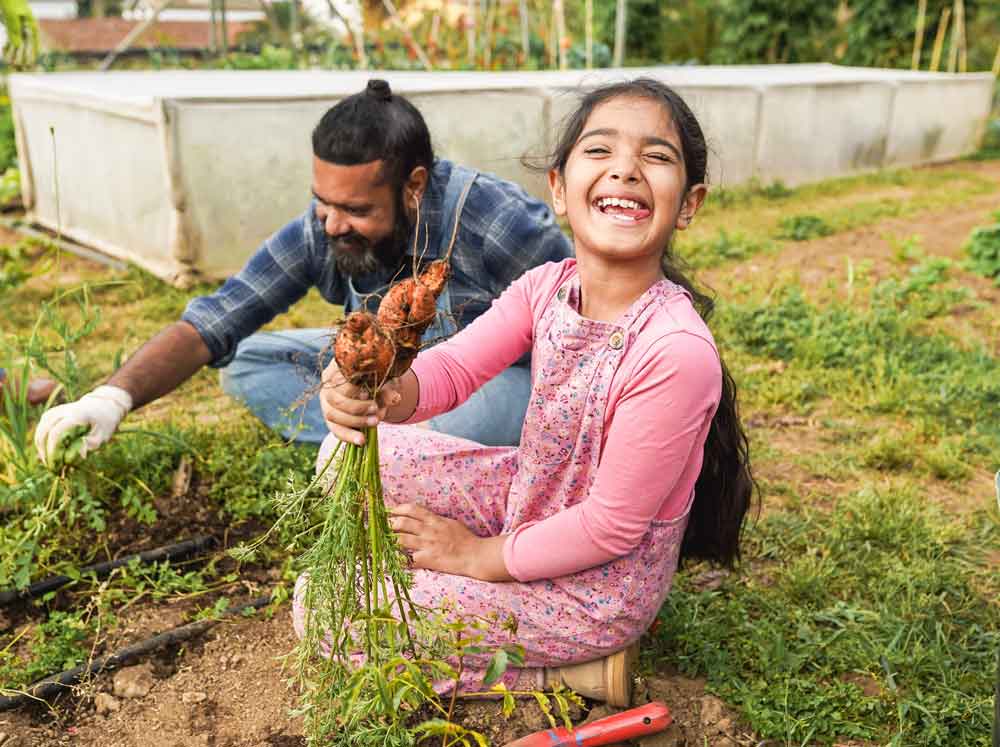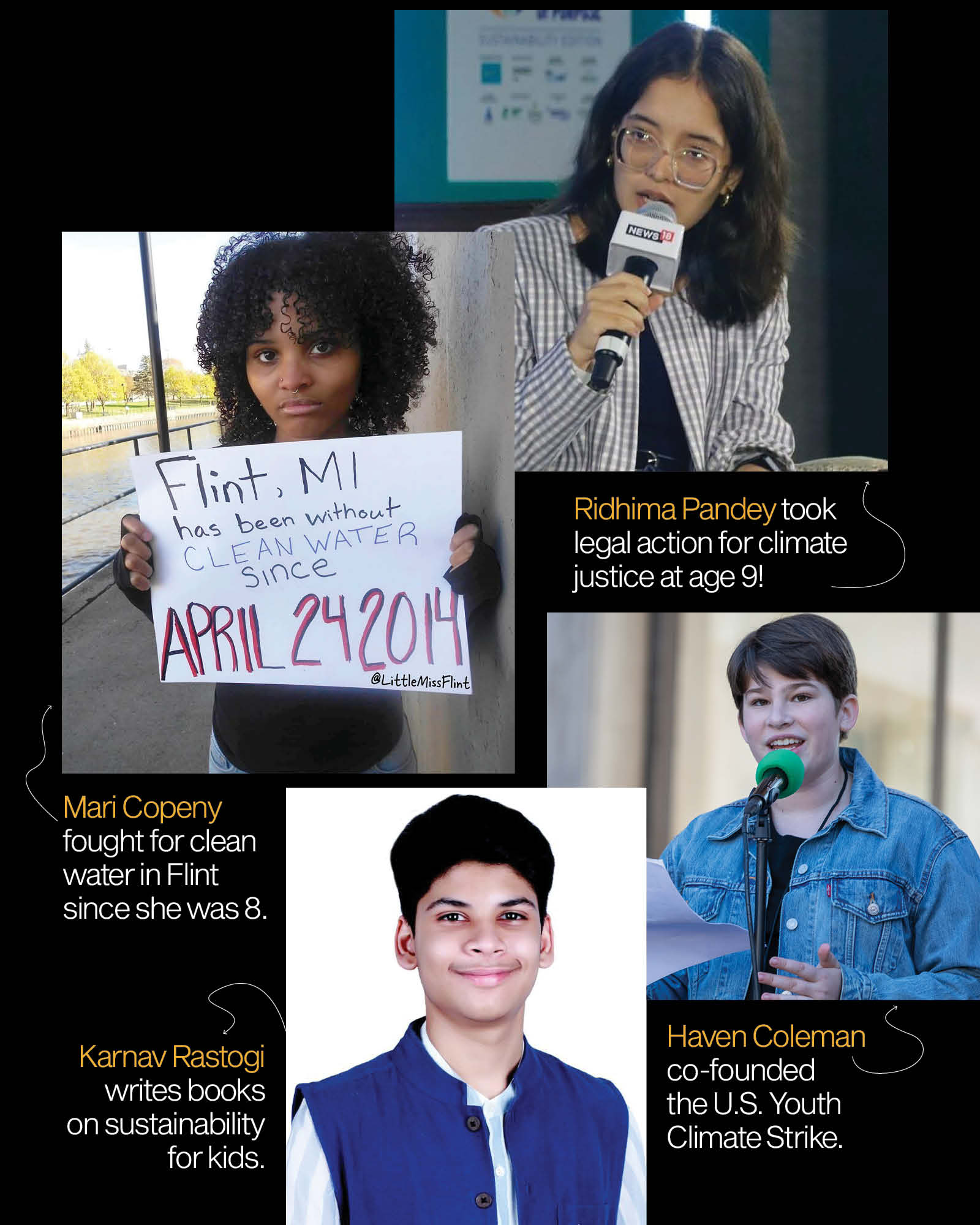As we celebrate Children’s Day, it’s the perfect time to recognise the essential role that children play in creating a better, greener future for our planet. From their unique curiosity to their adaptability, children’s minds are open to new ideas, making them naturally suited to embrace sustainability. When we equip kids with the tools and knowledge to care for the Earth, we aren’t just teaching them to be mindful citizens—we’re creating a generation of environmental stewards who can carry the torch of eco-responsibility forward.
Children’s Role in Shaping Sustainable Futures

Image used for representational purposes only.
Children view the world with fresh, unfiltered perspectives, and they absorb lessons about the environment with enthusiasm and empathy. Teaching them about sustainability early helps lay a foundation for lifelong habits. When children learn to value clean air, green spaces, and wildlife, they grow up with a natural desire to protect and improve these elements. By nurturing this awareness, we cultivate a generation who sees environmental care not as an obligation but as a way of life.
Early Education on Environmental Issues

Image used for representational purposes only.
Early education in sustainability can have a lasting impact. Schools can integrate environmental topics into their curriculum, offering lessons on issues like waste reduction, recycling, and water conservation. Involving kids in hands-on activities, such as planting trees, composting, and beach clean-ups, helps them connect to these practices on a personal level. Studies show that when children engage with sustainability through interactive, real-world experiences, they’re more likely to adopt eco-friendly habits and pass these on to others.
Inspiring Responsibility Through Small Actions

Image used for representational purposes only.
Encouraging kids to participate in environmental activities can build lifelong habits. Here are a few easy actions that can make sustainability a fun and engaging journey for children:
Recycling 101: Teach kids to sort recyclables by setting up separate bins for plastic, paper, and glass. Make it a fun sorting game they look forward to each week.
Gardening Together: Start a small herb garden, even if just in pots, so kids can see the life cycle of plants and understand the importance of green spaces.
Energy Conservation: Involve children in turning off lights, fans, and appliances when not in use, turning it into a “light patrol” activity where they’re rewarded for every light they turn off.
Reusable Bags and Bottles: Make reusable items like bags and water bottles a family staple. Let kids pick out or decorate their own reusable items to add a personal touch.
Nature Walks with a Purpose: Take kids on a nature walk where they can pick up litter along the way. It’s an impactful way to appreciate nature while practising environmental responsibility.
Waste-Free Lunches: Get kids involved in packing their own lunches with reusable containers and no single-use items. This will make them feel responsible for reducing waste and foster mindfulness about plastic usage.
Educational Storytime: Introduce kids to books and stories about the environment and eco-heroes, so they see sustainability as an exciting adventure rather than a chore.
Young Eco-Activists Making a Difference
Young eco-activists have emerged as powerful advocates for the environment, demonstrating how youth-led movements are creating impactful change worldwide. Here’s a look at some of these inspiring young leaders and their campaigns, alongside simple steps we can take to introduce children to sustainability.

1. Ridhima Pandey – Legal Action Against Government Inaction on Climate
Ridhima Pandey, one of India’s youngest climate activists, gained international recognition when, at just nine years old, she filed a petition against the Indian government for failing to curb climate change. Her petition highlighted the government's lack of policy to address climate issues and demanded action to protect her generation’s future. Ridhima continues to advocate for environmental awareness in India, inspiring many young people to join the movement for climate justice.
2. Mari Copeny (USA) – Fighting for Clean Water
Known as “Little Miss Flint,” Mari Copeny has been advocating for clean water access in Flint, Michigan, since she was 8. Her campaigns highlight the ongoing water crisis in Flint and other areas, advocating for safe drinking water for all. Mari has raised thousands of dollars to provide bottled water for her community and has used her platform to push for policies ensuring clean water access.
3. Karnav Rastogi (India) - Writing up a Revolution
Karnav Rastogi, a young environmentalist from India, is transforming how young people engage with sustainability. Author of Kartik, the Climate Change and Green Humour for a Greener Planet, he uses storytelling to simplify eco-issues for kids. Beyond writing, Karnav leads workshops on waste reduction and recycling, inspiring peers to adopt eco-friendly habits. His efforts have earned him recognition as a young leader in India's environmental movement, showing that even small voices can drive big change.
4. Haven Coleman (USA) – Founder of U.S. Youth Climate Strike
Haven Coleman, a climate activist from Colorado, co-founded the U.S. Youth Climate Strike movement to mobilise students and demand action against climate change. She began her journey at age 12, and her work emphasises educating young people on sustainability and urging policymakers to make environmentally-friendly decisions. Haven also champions issues related to deforestation and animal welfare.
Nurturing Tomorrow’s Eco-Leaders
By encouraging environmental awareness in children today, we lay the groundwork for a sustainable future. Children’s enthusiasm and unique viewpoints make them exceptional ambassadors for the planet. As parents, teachers, and society, our role is to provide them with knowledge, resources, and inspiration.
This Children’s Day, let’s take the pledge to nurture eco-consciousness in young minds and support the next generation of Earth’s superheroes.